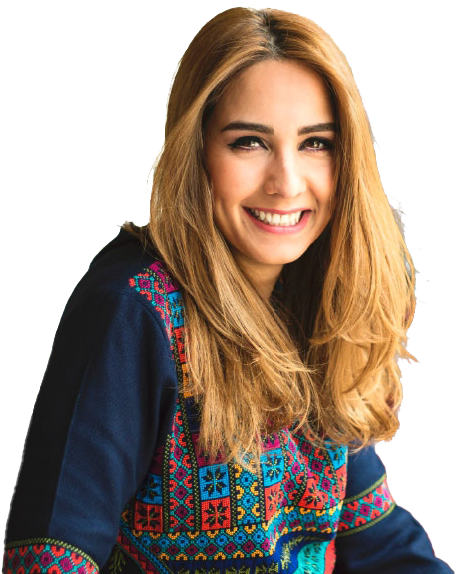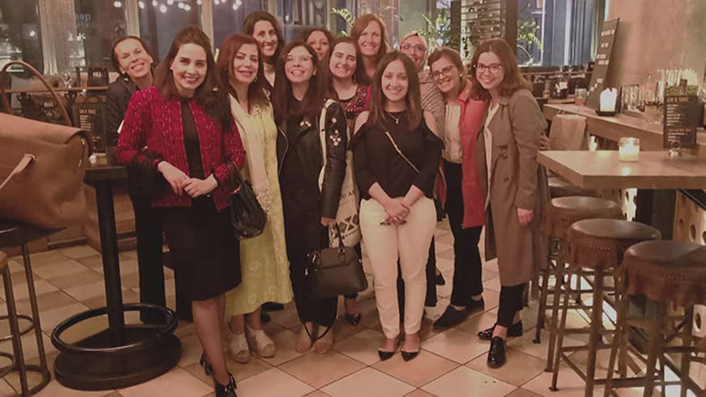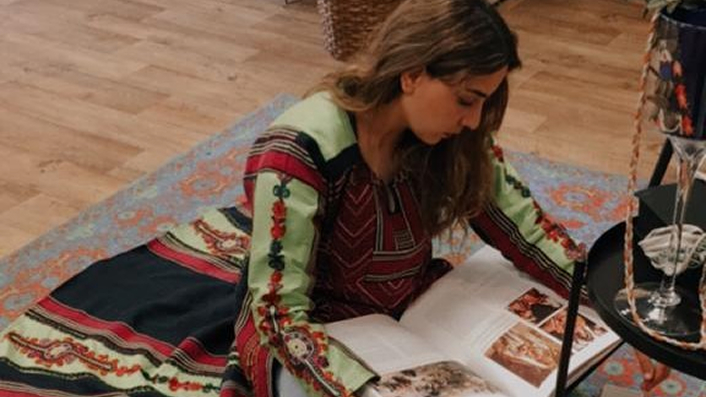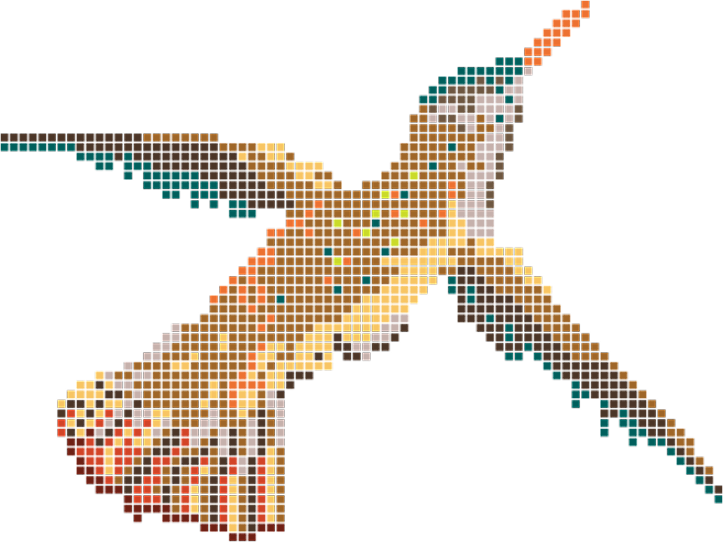
Sunbird
Inspired by the hidden beauty of nature, CEO and Chief Designer, Noora Abdeen Khalifeh chose as her primary motif the Palestinian Olive-backed Sun Bird, at once a spectacle of natural, mystical, and ancient beauty and an analog for defiance and freedom. Historically a symbol of Palestine, Ms. Khalifeh’s sunbird spreads her wings in a framed frozen flurry of soft, warm beige, olive green and ocean blue. This sunbird is more than a symbol of Palestine; she is a symbol of Palestinian hope (for freedom), migrating in direct defiance of borders and restrictions from the beaches of Gaza to the plains, forests, mountains, and villages of Palestine’s central and northern lands finally to the coastal mountains and valleys of her sister Lebanon.
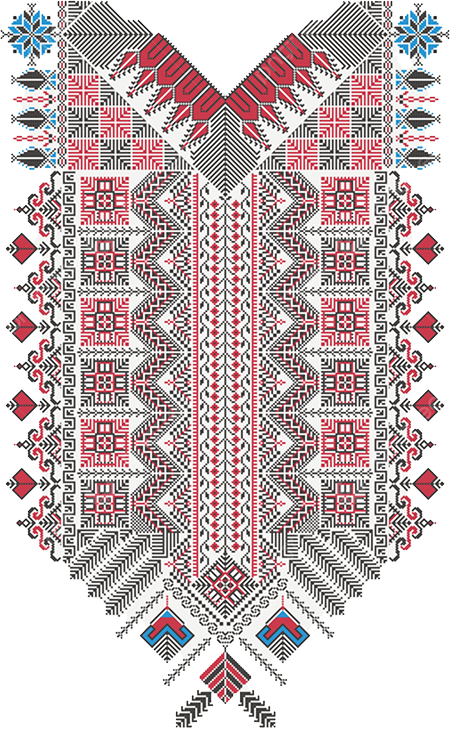
cultural
Dar Noora is very proud of its social outreachand the way it connects the traditional artisans who have historically produced such complex and ornate cross-stich designs for generations to a blossoming industry and a market, to which they would otherwise not have access. Beyond outreach, Dar Noora sees this work not only as an opportunity to create expressive, novel designs never before seen elsewhere, but also as a means of preserving Palestine’s rich cultural heritage. Cultural preservation vis-à-vis incorporating traditional cross-stitch in every design is one of Dar Noora’s top priorities.
